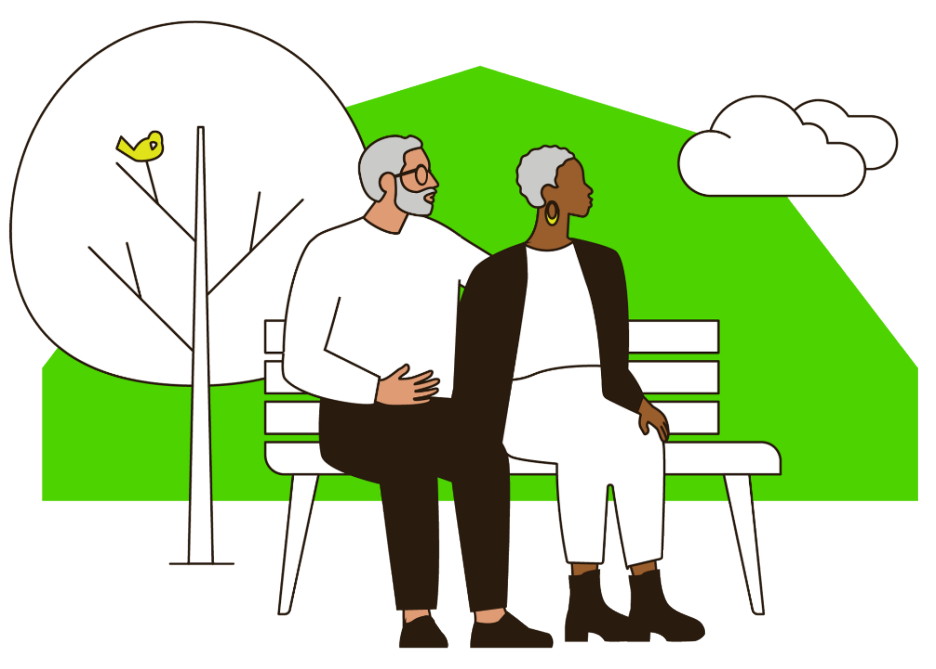You may have come across job adverts calling for "passion" and "energy". You might have even put these words in your own ads.
These terms seem positive, but I think they play into stereotypes that implicitly link these qualities with youth.
Words like these could deter older workers who might not see themselves reflected in such language, despite possessing a wealth of experience, wisdom, and a different (perhaps more sustained) kind of drive.
By not using words that are associated with the positive signs of ageing such as "wisdom", "experience", "mentorship skills", or "stability", companies are failing to appeal to a demographic that offers significant advantages.
Anne Karpf, author of How to Age, highlighted on our Money:Mindshift podcast recently how deeply ingrained ageist stereotypes are in society - as well as both how and why we should start to reject them.
The double standards of ageing
The issue is further complicated by the double standards of ageing, which I believe disproportionately affects women.
As Anne discussed with me for our podcast, society traditionally values women for their beauty, for their looks, and their ability to have children and care for children. Again, a stereotype.
As they age, if their looks don't conform to youthful ideals, they could be seen as less valuable, unless they invest heavily in anti-ageing measures. This is in stark contrast to men, who may be perceived as "silver foxes", gaining a certain gravitas with age.
Karpf highlighted this societal pressure, noting that: ‘Women are encouraged to view themselves through the social media filter lens. And we know how harmful that is’.
Karpf told me that she recalled interviewing a 25-year-old woman who worked at a beauty counter. She discovered that she was ‘the only one of her peer group who hadn't had Botox. This anecdote illustrates the immense pressure on women to resist visible signs of ageing. This pressure is so intense that it can lead women to not really think about ‘the practical aspects of ageing’, such as financial planning for retirement.
Karpf suggests that ‘the idea of ageing is so loathsome to women because it's so associated with the decline of what traditionally has been seen as one of their greatest assets’: their looks.

The broader impact of ageism
This fear of ageing is not limited to women, though. Anne suggested to me that men are increasingly opting for cosmetic procedures to look younger, perhaps partly due to the rapid obsolescence of skills in a fast-paced technological landscape where younger, ‘digital natives’ are often favoured. The problem is that this fear could prevent us from embracing ageing as a natural and privileged part of life.
Karpf challenges the notion that ‘age is just a number’, arguing that it isn't, but also that ageing doesn't (and shouldn’t) strip away our essence. That it’s a privilege to age.
For employers, this means recognising that, while an older candidate might not have the "raw energy" of a fresh graduate, they offer qualities developed over years: resilience, calmness under pressure, established networks, and a nuanced understanding of human nature.
These are invaluable assets that could contribute to a stable, knowledgeable, and effective workforce.
Creating a better relationship with the future
So, what can employers do to tap into this underutilised talent pool?
- Rethink job ads: Move beyond buzzwords like "passion" and "energy". Instead, focus on skills and attributes that come with experience, such as "mentorship", "strategic thinking", "problem-solving under pressure", "resilience", and "a steady hand".
- Highlight intergenerational collaboration: Emphasise how your company values diverse perspectives and how different age groups can learn from each other. As Anne Karpf suggests in our podcast, intergenerational relationships are very enhancing.
- Challenge internal biases: Encourage hiring managers to recognise and question their own preconceptions about age. Training on unconscious bias can be a powerful tool.
- Promote lifelong learning: Invest in training and development programmes for employees of all ages, demonstrating a commitment to continuous growth regardless of chronological age. Karpf says in our podcast: ‘You can maintain a fantasy when you're younger, but you can learn things’, too.
- Share positive ageing narratives: Showcase older employees who are thriving and contributing significantly to the company. This helps to normalise and celebrate ageing within the workplace.
By reframing our perspective on ageing and actively challenging ageist stereotypes, employers can create a more inclusive and dynamic workforce. This not only benefits older individuals by valuing their contributions, but could enrich the entire organisation with a wider range of experiences and perspectives.
It's about seeing the "arc of life" and recognising that every stage brings unique and valuable attributes.
As Karpf suggested on our podcast: ‘One of the most valuable things you can do is seek out older people who you admire and develop a relationship with them’. For employers, this translates to seeking out and valuing the experience that comes with age. ‘If we focus too much on age, I think it disables us and stops us living as fully as we can,’ Anne said to me – adding: ‘It’s a tremendous privilege to age.’
